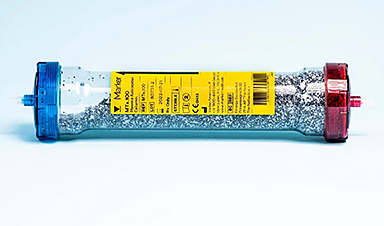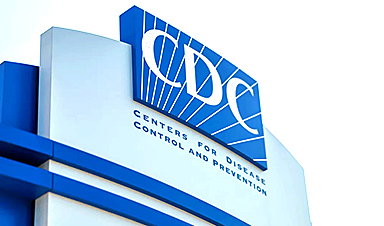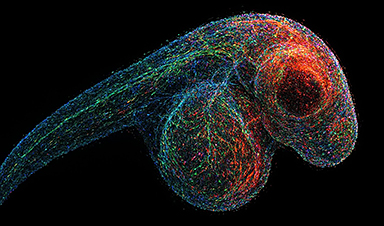Twice-yearly injections of the capsid inhibitor drug lenacapavir can prevent the vast majority of HIV infections, according to a Phase 3 clinical trial published Wednesday in the New England Journal of Medicine.
HIV pre-exposure prophylaxis (PrEP) has emerged as a crucial tool for fighting the global HIV epidemic, but researchers say daily pill regimens remain an obstacle to treatment adherence. “Long acting antiretrovirals have raised the bar with respect to the reach, efficacy and effectiveness that can be achieved in our efforts to prevent HIV,” said Onyema Ogbuagu, MBBCh, associate professor of medicine and pharmacology at Yale School of Medicine and director of the Yale Antivirals and Vaccines Research Program, who was the senior author of the study.
The trial enrolled 3,271 cisgender men and gender-diverse people and compared HIV twice-yearly lenacapavir injection to background infection rates and to Truvada, a daily pill for PrEP. Researchers say among 2,179 participants in the lenacapavir group, they found only two incident HIV infections – a 96% reduction compared to background HIV incidence. The Truvada group had nine incident cases among 1,086 participants. No new or significant safety concerns were identified.
The trial found lenacapavir decreased HIV incidence by 89% compared to Truvada. “Our study showed that twice-yearly injectable lenacapavir, beyond protecting 99.9% of recipients from acquiring HIV, superiorly outperformed a standard of care oral comparator, was safe and well tolerated,” Ogbuagu said.
Researchers say the nine participants in the Truvada group who experienced incident HIV infection showed evidence of low or no treatment adherence, underscoring the importance of PrEP options that fit a variety of patients and lifestyles. “With these results, we now have a new, potent and proven tool that can allow us expand and strengthen efforts to end HIV transmission globally,” Ogbuagu added.
About Yale School of Medicine
Yale School of Medicine educates leaders in medicine and science, fostering curiosity and critical inquiry in a diverse, inclusive environment. It is a global leader in biomedical research, clinical care, and medical education, ranking fourth in NIH funding and tenth in NIH dollars per faculty member. With over 1,700 physicians, Yale provides compassionate care to patients worldwide. The Yale System of Medical Education emphasizes critical thinking and independent research, producing leaders in academic medicine.
News
How Everyday Plastics Quietly Turn Into DNA-Damaging Nanoparticles
The same unique structure that makes plastic so versatile also makes it susceptible to breaking down into harmful micro- and nanoscale particles. The world is saturated with trillions of microscopic and nanoscopic plastic particles, some smaller [...]
AI Outperforms Physicians in Real-World Urgent Care Decisions, Study Finds
The study, conducted at the virtual urgent care clinic Cedars-Sinai Connect in LA, compared recommendations given in about 500 visits of adult patients with relatively common symptoms – respiratory, urinary, eye, vaginal and dental. [...]
Challenging the Big Bang: A Multi-Singularity Origin for the Universe
In a study published in the journal Classical and Quantum Gravity, Dr. Richard Lieu, a physics professor at The University of Alabama in Huntsville (UAH), which is a part of The University of Alabama System, suggests that [...]
New drug restores vision by regenerating retinal nerves
Vision is one of the most crucial human senses, yet over 300 million people worldwide are at risk of vision loss due to various retinal diseases. While recent advancements in retinal disease treatments have [...]
Shingles vaccine cuts dementia risk by 20%, new study shows
A shingles shot may do more than prevent rash — it could help shield the aging brain from dementia, according to a landmark study using real-world data from the UK. A routine vaccine could [...]
AI Predicts Sudden Cardiac Arrest Days Before It Strikes
AI can now predict deadly heart arrhythmias up to two weeks in advance, potentially transforming cardiac care. Artificial intelligence could play a key role in preventing many cases of sudden cardiac death, according to [...]
NanoApps Medical is a Top 20 Feedspot Nanotech Blog
There is an ocean of Nanotechnology news published every day. Feedspot saves us a lot of time and we recommend it. We have been using it since 2018. Feedspot is a freemium online RSS [...]
This Startup Says It Can Clean Your Blood of Microplastics
This is a non-exhaustive list of places microplastics have been found: Mount Everest, the Mariana Trench, Antarctic snow, clouds, plankton, turtles, whales, cattle, birds, tap water, beer, salt, human placentas, semen, breast milk, feces, testicles, [...]
New Blood Test Detects Alzheimer’s and Tracks Its Progression With 92% Accuracy
The new test could help identify which patients are most likely to benefit from new Alzheimer’s drugs. A newly developed blood test for Alzheimer’s disease not only helps confirm the presence of the condition but also [...]
The CDC buried a measles forecast that stressed the need for vaccinations
This story was originally published on ProPublica, a nonprofit newsroom that investigates abuses of power. Sign up to receive our biggest stories as soon as they’re published. ProPublica — Leaders at the Centers for Disease Control and Prevention [...]
Light-Driven Plasmonic Microrobots for Nanoparticle Manipulation
A recent study published in Nature Communications presents a new microrobotic platform designed to improve the precision and versatility of nanoparticle manipulation using light. Led by Jin Qin and colleagues, the research addresses limitations in traditional [...]
Cancer’s “Master Switch” Blocked for Good in Landmark Study
Researchers discovered peptides that permanently block a key cancer protein once thought untreatable, using a new screening method to test their effectiveness inside cells. For the first time, scientists have identified promising drug candidates [...]
AI self-cloning claims: A new frontier or a looming threat?
Chinese scientists claim that some AI models can replicate themselves and protect against shutdown. Has artificial intelligence crossed the so-called red line? Chinese researchers have published two reports on arXiv claiming that some artificial [...]
New Drug Turns Human Blood Into Mosquito-Killing Weapon
Nitisinone, a drug for rare diseases, kills mosquitoes when present in human blood and may become a new tool to fight malaria, offering longer-lasting, environmentally safer effects than ivermectin. Controlling mosquito populations is a [...]
DNA Microscopy Creates 3D Maps of Life From the Inside Out
What if you could take a picture of every gene inside a living organism—not with light, but with DNA itself? Scientists at the University of Chicago have pioneered a revolutionary imaging technique called volumetric DNA microscopy. It builds [...]
Scientists Just Captured the Stunning Process That Shapes Chromosomes
Scientists at EMBL have captured how human chromosomes fold into their signature rod shape during cell division, using a groundbreaking method called LoopTrace. By observing overlapping DNA loops forming in high resolution, they revealed that large [...]





















